‘Weak, unpopular’ Macron using military means to quell protests: Professor
By Somayeh Khalili
The government of Emmanuel Macron in France is both “weak and terribly unpopular” and believes that resorting to suppressive mechanisms and even the military is “the only way” to quell popular protests sweeping the country, according to a political observer.
In an interview with the Press TV website, Stavros Mavroudeas, a professor at Panteion University in Greece, said the simmering protests in France have grown bigger and louder because of another racist incident involving the French police against a teenager of migrant origin earlier this week.
Nahel M., 17, was shot and killed point-blank by French police in the Paris suburb of Nanterre on Tuesday, filmed and shared widely online, sparking angry nationwide protests and calls for justice.
The teenager’s brutal killing by French police has now become a rallying call for persecuted minorities in France in a similar way that George Floyd's murder by a US police officer in Minneapolis in 2020 did.
French police have been accused of using indiscriminate force to crush peaceful demonstrations against Nahel M’s killing, with some videos showing policemen using live ammunition as well.
Mavroudeas said the Western countries have a “long tradition of such incidents” in which members of minority communities are targeted by law enforcement agencies, with the US “being the leader.”
“Western capitalist countries, facing periodic labor shortages, attracted migrant workers in order to replenish their workforces. At the same time, they discriminate against these migrant populations by keeping them in poverty, living with meager wages or in unemployment and facing institutional discrimination and harassment,” the Athens-based university professor said.
“There is a logic behind Western capitalism’s attitude: they create segmented labor markets where the migrant populations are kept separately from the main labor market. This inferior labor market is characterized by smaller wages, worse working conditions and high unemployment.”
On Macron government’s use of excessive force against French protesters, Mavroudeas said the incumbent government in Paris is both “weak and terribly unpopular”.
“Macron's government is weak because it does not have a parliamentary majority and it is actually running a presidential dictatorship where the president – like an emperor – rules by decree,” the professor said.
“It is unpopular because Macron is a typical ‘extreme-center’ politician. He is the artificial creation of capitalist elites. He unabashedly favors capital (through tax exemptions etc.) and attacks labor and the working class (as in the recent social security changes).”
He hastened to add that for Macron, “resorting to suppressive mechanisms and even the military (although the French police are heavily militarized itself) is the only way through which he expects to quell the protests.”
Mavroudeas further noted that Western capitalist states, including France, are mired in “deep crisis” and have “exhausted their productive capabilities.”
“Their attempt to overcome this problem through the increase of working class’ exploitation endangers the very stability of their socio-economic systems,” he told the Press TV website.
“This makes them jittery and leads them to respond violently against even the more peaceful protests. The number of gravely injured during previous French protests is tragically high.”
Pertinently, popular anti-government protests in France have continued since January this year after the Macron government proposed a bill aimed at increasing the retirement age from 62 to 64 years old.
A series of industrial actions have in recent months caused widespread disruption in the country, including garbage piling up in the streets, apart from public transport cancellations.
Several organizations, including human rights groups such as Reporters Without Borders and France's Human Rights League, have condemned the crackdown on protesters, French citizens and journalists.
Mavroudeas said the growing discontent in France and other Western countries shows these governments are “in a process of growing alienation from the majority of their populations."
“They serve capitalists and small wealthy elites. Periodically they need some democratic legitimization through elections. In these cases, they try to blackmail the people into voting systemic parties through clientelism and false electoral dilemmas,” he remarked.
“This is a myopic and short-lived solution. However, Western governments have no other way to follow as a steady and significant improvement of the economic condition of the laboring masses is ruled out.”
VIDEO | Yemen: A bone in Israeli neck
D-8’s role in Iran’s economy after Cairo summit
China slams US as ‘war-addicted’ threat to global security
China ‘firmly opposes’ US military aid to Taiwan
VIDEO | Press TV's News Headlines
President Yoon Suk Yeol to be removed from office
At least 19 Gazans killed by Israeli airstrikes since dawn: Medics
Leader: Iran neither has nor needs proxy forces


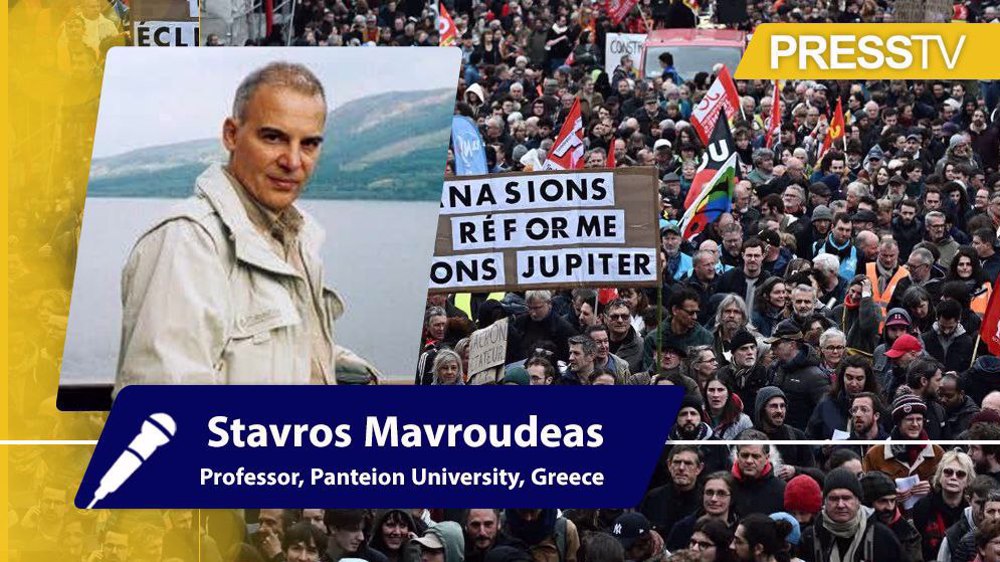
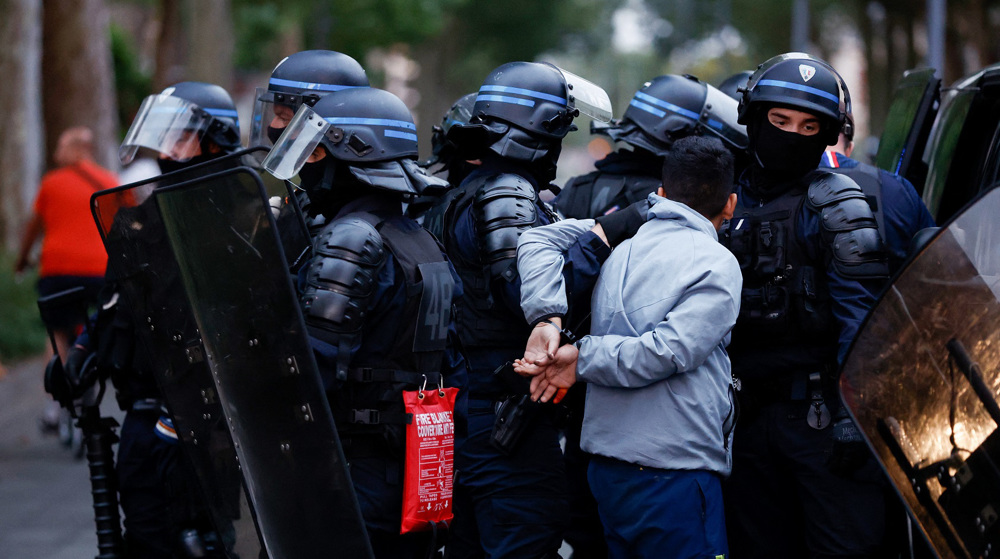






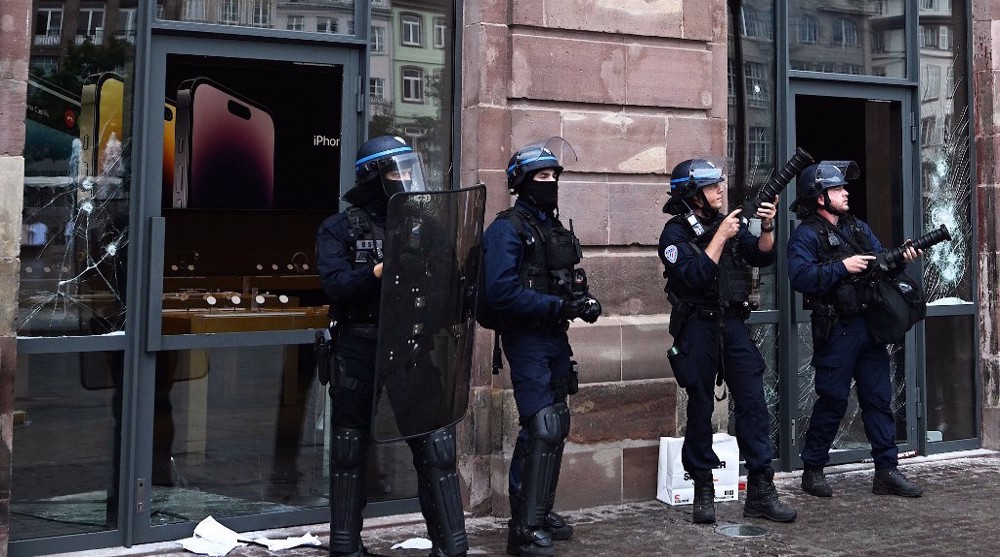
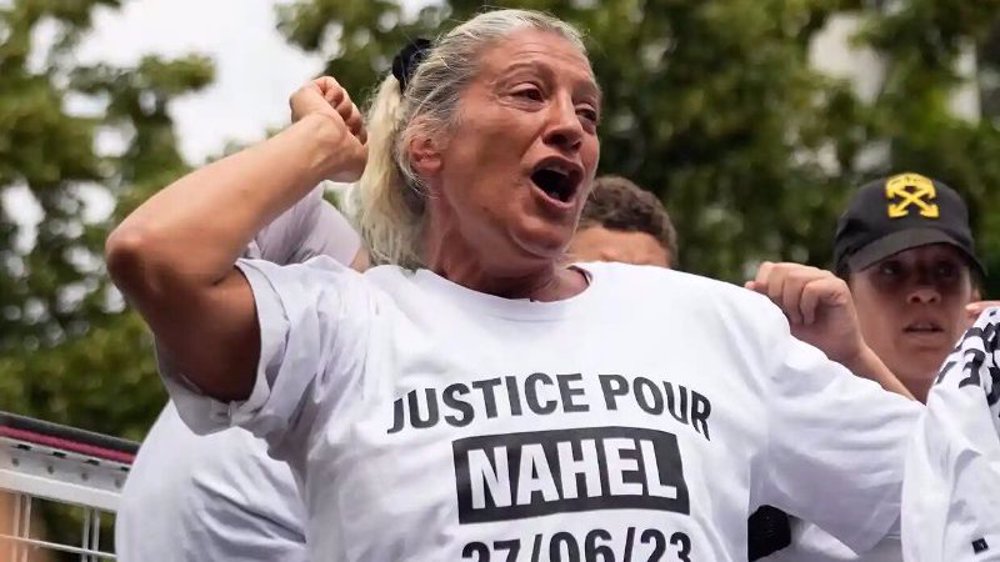
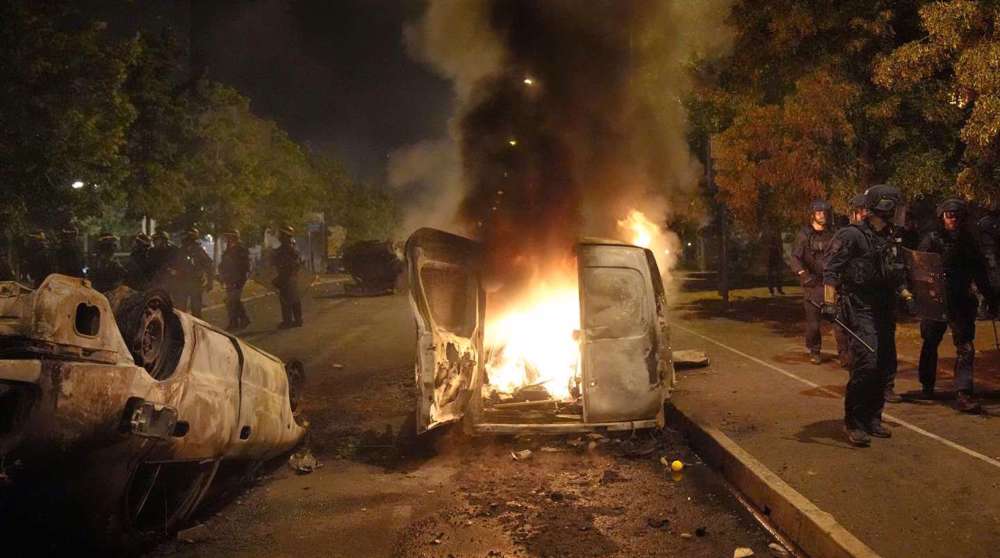
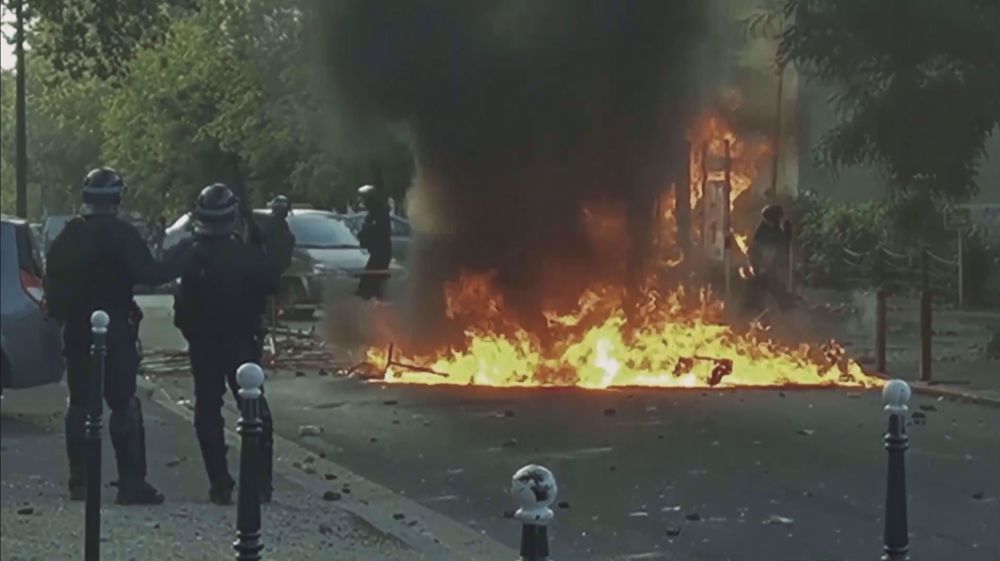

 This makes it easy to access the Press TV website
This makes it easy to access the Press TV website